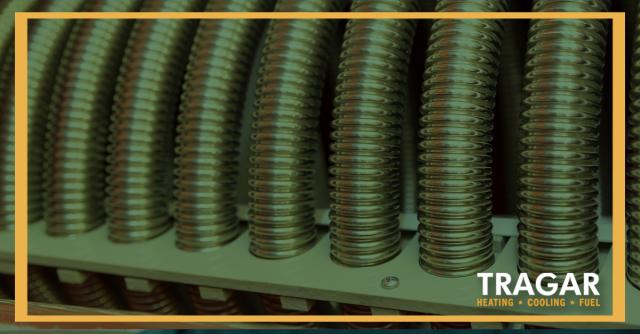Within your HVAC system, the heat exchanger is the component that transfers heat from one medium to another. It is vital for keeping your home the temperature and comfort level you require. Recognizing the signs of an old or damaged system can often save you on expensive repairs, but also prevent anything much worse from happening.
Can HVAC Units Overheat?
Yes, HVAC units can absolutely overheat… and with several potential causes why.
- Dirty Filters – Your air filter is a wall of protection that keeps dirt and debris out of your system. Over time they can become entirely covered with enough dirt to restrict airflow, which affects efficiency and safety.
- Dirty Condenser Coils – If your condenser coils get covered in dirt, the unit will have to run longer to achieve the same output which can cause overheating.
- Burnt-out Capacitor – Your unit has a component that essentially functions as a big battery to help various components run without needing to go through the full start-up routine every time. Which is good because the starting process tends to use the most energy. If the capacitor overheats then the motor it helps will not be able to function properly.
- Low-Refrigerant Levels – Your AC has a substance in it – either a liquid or gas – that helps cycle heat out of your home. If your unit is low on refrigerant, then the whole system must work longer to compensate and potentially overheat. Meant to be a closed system, the only way you can be low on refrigerant is if there is a leak somewhere.
- Age – All things must end, even your home’s furnace is not immune to the ravages of time. The average running life for furnaces and heating systems is about 15-20 years, while boilers and electric furnaces can expect to go 20-30 years. If you are unsure of how old your furnace is, you can find its serial number (which is generally located on the furnace cover panel) and along with the manufacturer name use the Internet to search and find the age of your unit.
What Causes HVAC Fires?
Frayed wires, improper installation, and/or flammable objects being stored too close to the unit. Any of these things and more can lead to an HVAC fire. The most proactive thing you can do, in regard to fire safety, is through regular maintenance.
Is It Safe to Run a Furnace With a Cracked Heat Exchanger?
The unit can work, but it absolutely should not be run because it is not safe. A cracked heat exchanger can allow toxic gasses – like carbon monoxide – to potentially poison people and pets, and it can even lead to house fires.
How Do I Know If My Heat Exchanger Is Broken?
If the furnace flame is yellow instead of blue, there may be a crack somewhere. If you notice any weird soot accumulation, strange puddles, rust, or odd odors then consider these warning signs for your HVAC safety. The most obvious signs are visible cracks on the heat exchange.
Furnace Problem? Call Tragar
Whether it is repair or maintenance, Tragar Home Services can take care of all of your heating system needs. Contact us for maintenance and repair services so we can help keep your family and your home safe.

